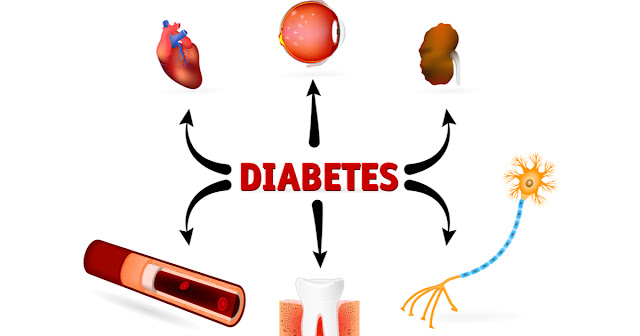How can Diabetes affect other parts of your body?
 |
| Diabetes affect other parts of your body |
What is diabetes?
Diabetes is a serious disease that can affect the eyes, heart, nerves, feet, and kidneys. It is important to understand how diabetes affects your body. It can help you stick to your treatment plan and stay as healthy as possible.
How do diabetes health problems start?
When diabetes is not well controlled, the blood sugar level rises. This is called "hyperglycemia." High blood sugar can damage very small blood vessels in the body. Think about what happens to sugar when it is left in an uncovered container overnight. It gets sticky. Now think about how sugar "sticks" to small blood vessels and makes it difficult for blood to reach organs. If you want to purchase Diabetes Medications such as Byetta(Exenatide), Lantis insulin or buy metformin trulicity online in the UK.
Damage to blood vessels most often occurs in the eyes, heart, nerves, feet, and kidneys. Let's see how this damage occurs:
Eyes
The eyes have tiny blood vessels. Having high blood sugar levels for a long time can harm them. Some blood vessels can become inflamed and weak. Some can become clogged and prevent enough blood from passing through. This can cause vision problems or blindness. High blood pressure can also make eye problems worse. Eye damage caused by diabetes is called "diabetic retinopathy."
Heart
High blood sugar levels can also damage larger blood vessels that supply oxygen to the heart and brain. Fat can also accumulate in blood vessels. These fat deposits can break down, causing blood clots and blockage of blood vessels. This can lead to a heart attack or stroke. In fact, 2 out of 3 people with diabetes die from heart disease or stroke. People with diabetes are also at higher risk for heart failure, a condition in which the heart cannot pump blood properly.
Nerves
Nerves carry messages between the brain and other parts of the body. They tell the body what you see or feel. For example, if you step on something sharp, a nerve in the foot will send a pain signal to the brain. Having high blood sugar levels for many years can damage the blood vessels that carry oxygen to some nerves. Damaged nerves can stop sending messages. Or they can send messages very slowly or at the wrong time. Nerve damage caused by diabetes is called "diabetic neuropathy."
Feet
Diabetes can damage your feet in two ways. First, it can damage the nerves in the feet. Nerve damage keeps you from feeling pain or other problems in your feet. Another way that diabetes can damage your feet is due to poor blood circulation. Poor blood flow makes it hard for sores to heal or to resolve an infection. If the sores don't heal and become infected, that can lead to amputation.
Kidneys
Think of the kidneys as a coffee filter. When you prepare coffee, the filter prevents the passage of the coffee beans but allows the passage of water. The kidneys do something similar. They keep the things you need in your body but filter waste and extra fluid.
The kidneys are full of tiny blood vessels. Over time, high blood sugar levels can cause these blood vessels to narrow and clog. As the kidneys receive less blood, less waste and extra fluid leave the body. Kidney disease caused by diabetes is called "diabetic kidney disease." It is the leading cause of kidney failure in the United States.



Comments
Post a Comment